'Business is about making money,' if you believe that, then you might be tempted to say that helping the planet and people might be jolly nice and all, but it is against the key mantra of business. For Net Zero Nation, however, there is no contradiction. The equation is simple: people plus planet equals greater profit.
"Being part of Net Zero Nation has allowed me to meet and collaborate with people that I would never have met if not part of the community."
"Our aim at Net Zero Nation is to present businesses with the commercial opportunities and confidence to implement smarter carbon practices in carbon measurement and removal today so that we still have a world tomorrow," says Gavin Tweedie, founder of Net Zero Nation.
He adds: "Reporting GHG emissions is key to a company’s transition to Net Zero but it is only the measurement, tracking and reporting of the size of the issue and progress being made. Without a strategy that sets Net Zero as a core target of the business it is impossible to demonstrate to stakeholders that the company has a credible plan."
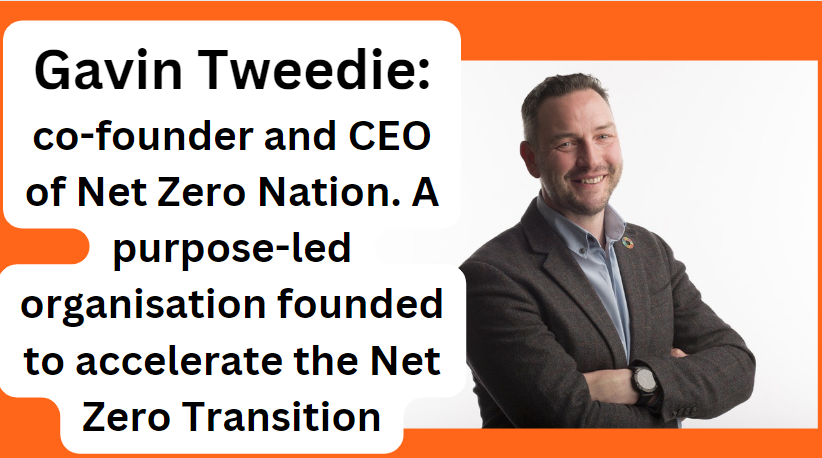
Here, we look at three companies, all of whom are soon to enter their third year as part of the Net Zero Nation family working to make money whilst simultaneously serving the planet and people.
The companies are:
· Britton Scotland, — a company that makes sustainable products from Harris Tweed,

· Booth Welsh, an engineering technology business with a background in the Process Industries,
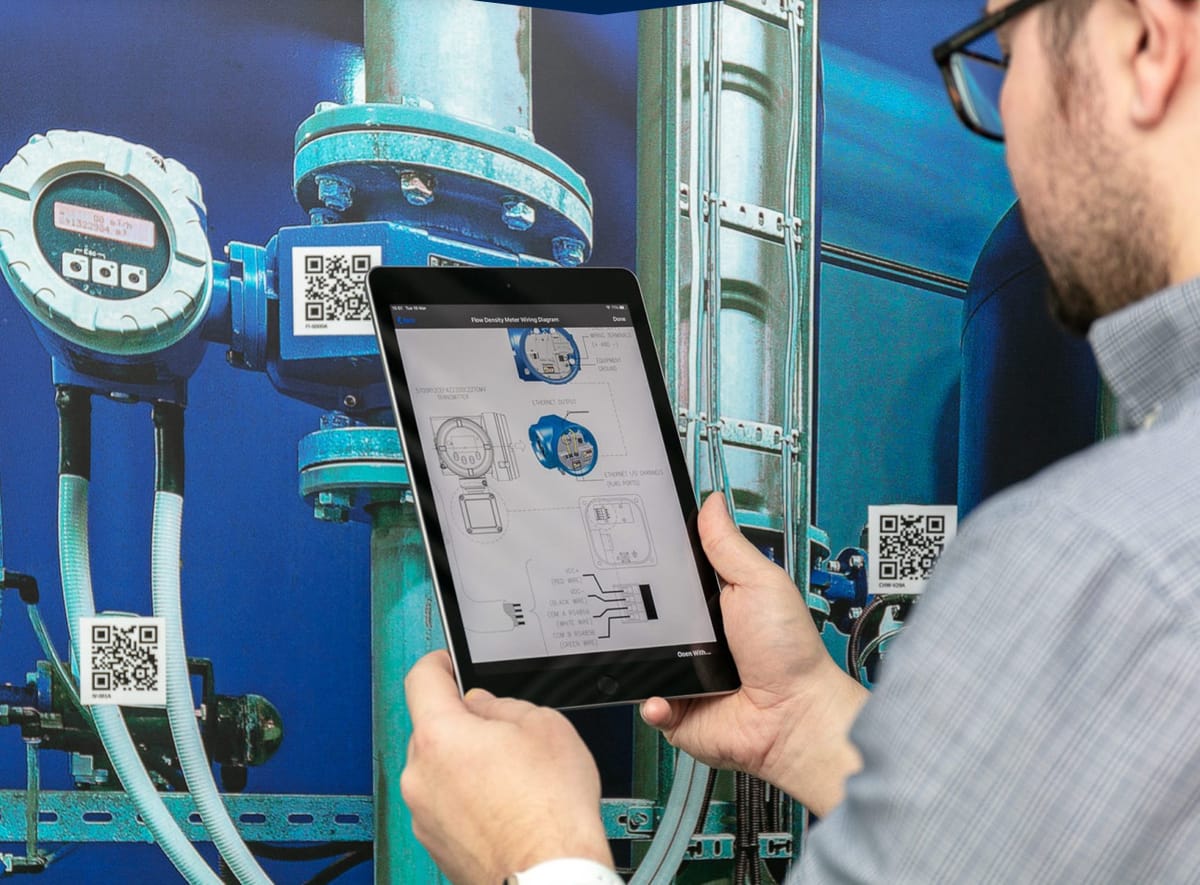
· and Ailsa Reliability Solutions, a conditioned monitoring reliability company.
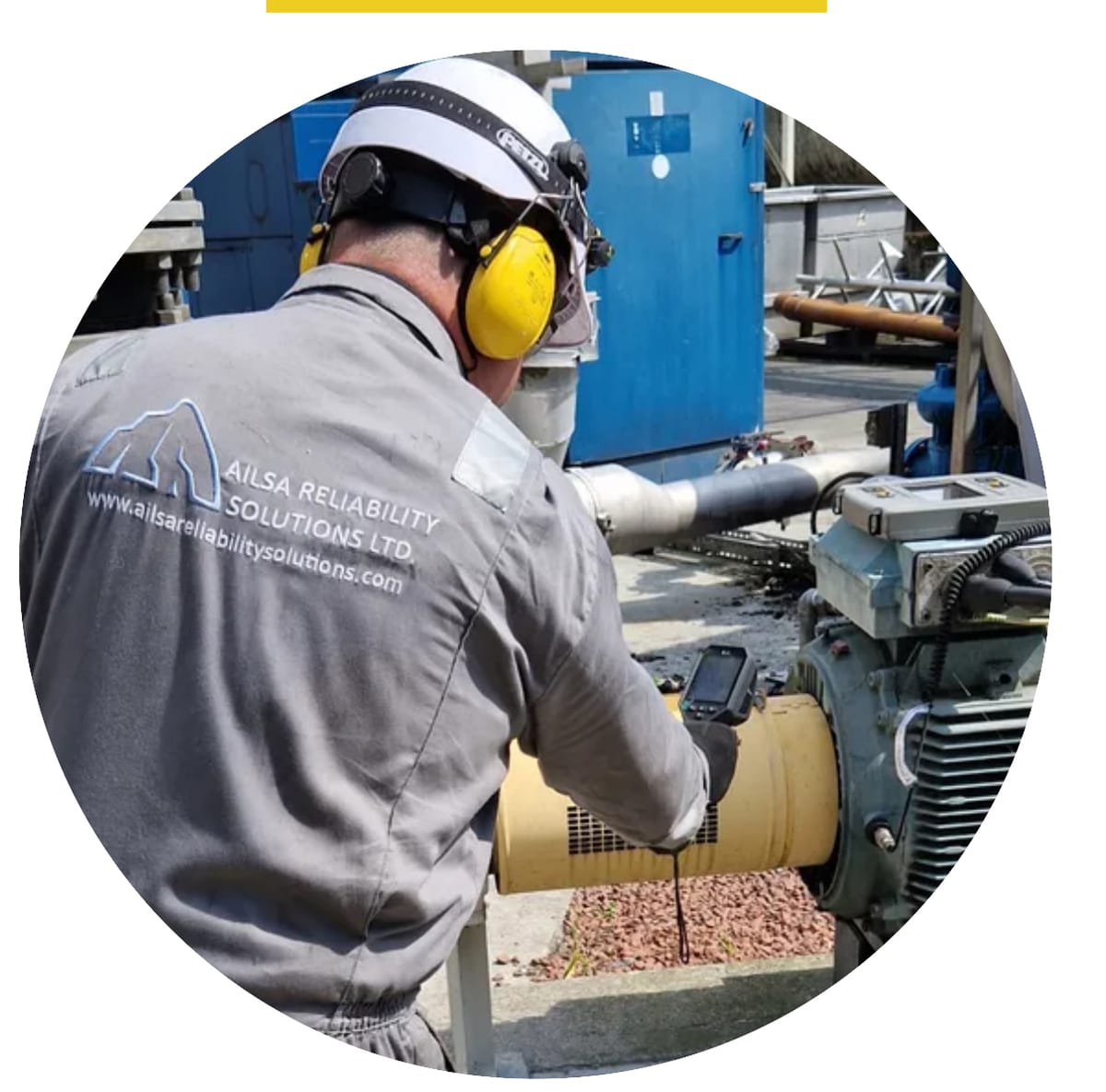
What is Net Zero Nation?
Gavin Tweedie on the ESG Show: "364,000 SMEs [in Scotland] make up 42% of our emissions."
"The 12-month Net Zero Accelerator programme is designed to mass-mobilise SMEs in the business community to start their Net Zero journey easily," says Gavin.
It reinforces your way of thinking, and discussion is always important. People say, 'We have tried this."
He adds: "Studies show that SMEs are the least able group to implement steps to transition to Net Zero. The journey begins with a benchmarking carbon report and accounts certified to UN Science-based target standards, with expert-led sessions for carbon reduction and removal and peer group sessions for practical advice and best practice.
"Participants and graduates from our Accelerator programme are automatically invited into the Net Zero Nation community Ecosystem. Here, they can collaborate with peers, mentor newer or smaller businesses, become sustainability leaders in their industry, host and lead accelerators, and even sponsor other businesses in their supply chain or industry.
So what does all this mean?
Amy Britton from Britton Scotland, Aimee Doole from Booth Welsh and Jamie Burns from Ailsa Reliability Solutions all agree: collaboration with like-minded individuals, passionate about doing the right thing, is vital,
As Jamie Burns said, "Being part of Net Zero Nation has allowed me to meet and collaborate with people that I would never have met if not part of the community. The accelerator helped me build my business brand."
Or as Amy Britton said: "It reinforces your way of thinking, and discussion is always important. People say, 'We have tried this."
Aimee Doole said: "we have been able to bring a lot and learn a lot."
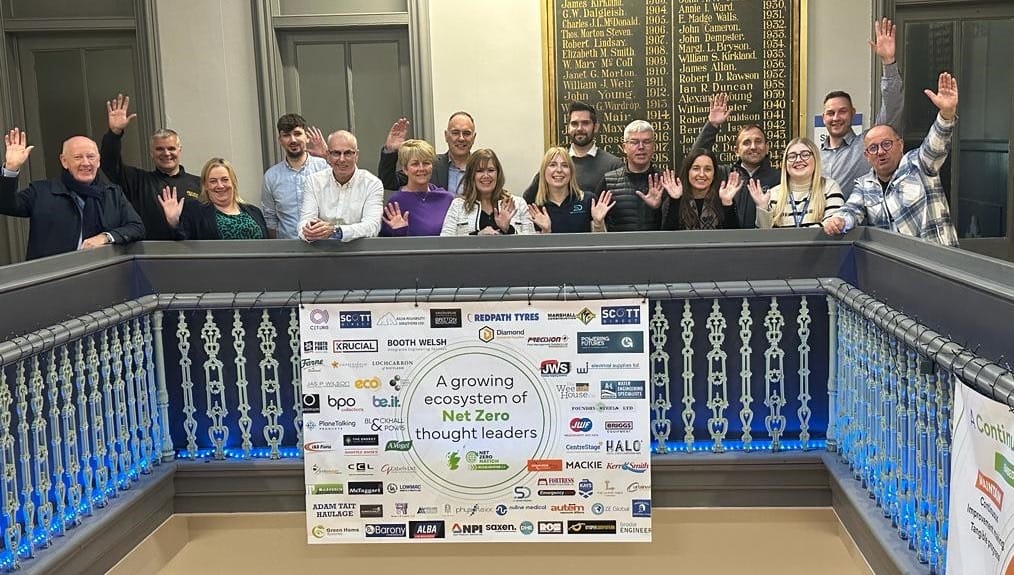
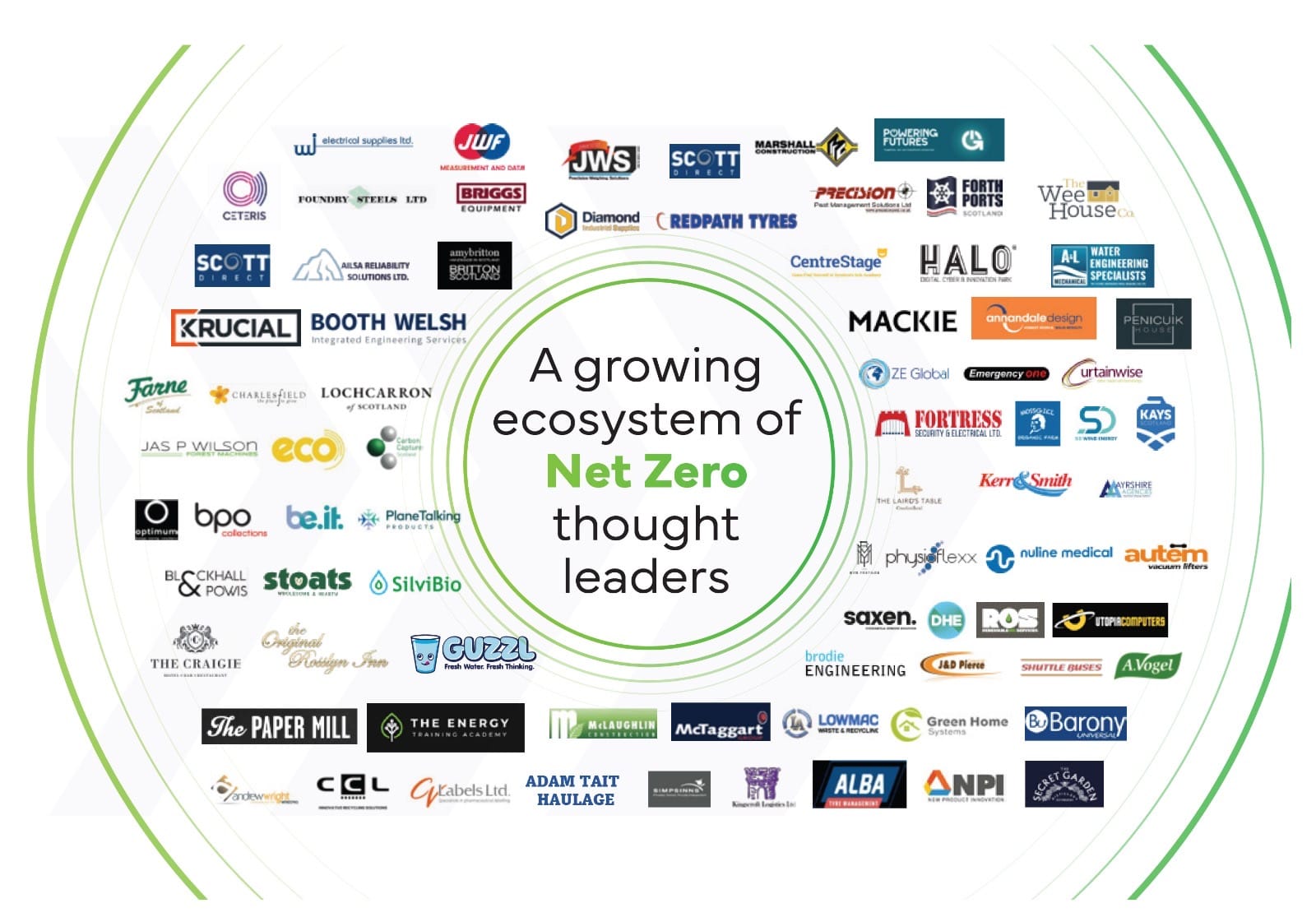
The state of play
In 2023, 100 SMEs with a combined an annual turnover of £1.5 billion joined Net Zero Nation Accelerator programmes.
And what does this mean? It means these companies and their respective supply chains are now starting to be actively measured and decarbonised to science-based targets.
Disruption
Disruption happens — ask Kodak or Blockbusters. And for Gavin, net zero is like a disruptive technology. He says: "This is a Blockbuster video moment for business. They ignored video streaming and now don't exist. Net Zero is not going away. It's coming towards every company of every size, and those who embrace it now will be the winners; those who wait could cease to exist. We need to do everything we can to protect our SME community as they are the engine room of our economy, where the innovation will come from and drive change across the world's supply chains."
Next step
"Individually, there are not enough resources or time to mass mobilise action. We need many organisations to build mass mobilisation programs to go faster and further on climate action. Please get in touch with me if you are a supply chain owner looking to mobilise and decarbonise large groups of supply chains rapidly or would like advice on creating your own mass mobilisation programme."
For more in this series, see:

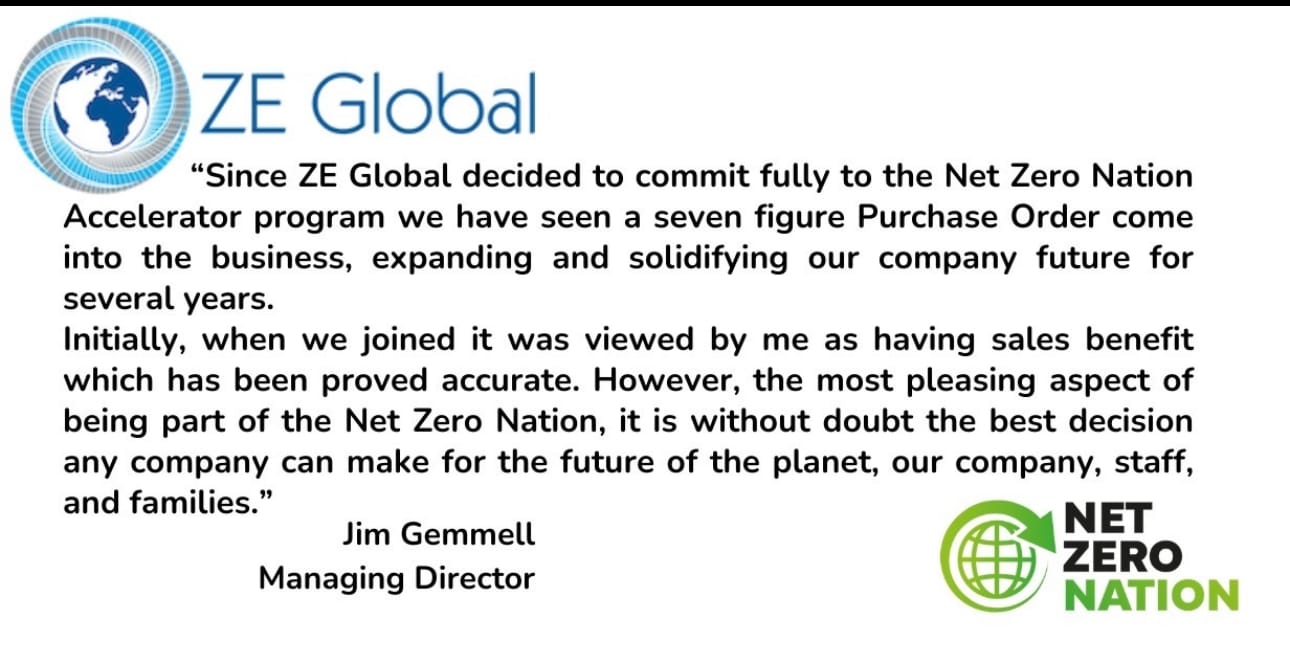






Related News
Navigating the ESG backlash
May 08, 2024
Something rather important is lying hidden, and one of our guests this week knows how to find it.
Apr 23, 2024
If this is an AI bubble, then heed the lessons of the dotcom bubble
Apr 07, 2024